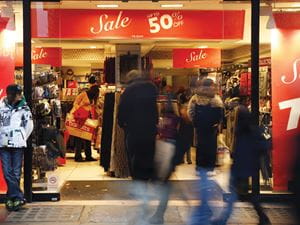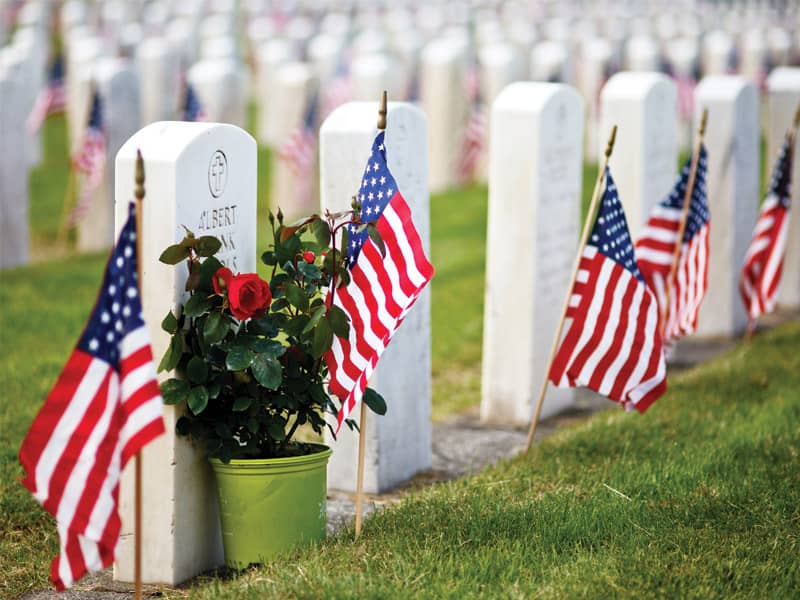
The term “Black Friday” conjures up visions of credit cards, cash, and long lines of deluded shoppers looking for a bargain. Some camp outside stores to be first in line. You would think that November would be just talking turkey and football, but the day after Thanksgiving really has become the most celebrated shopping day of the year.
Food and shopping are part of the frills for people, and for retailers, it means more cha-ching at the register to pad profits. Retailers really rejoice at this time as much as bargain-hunters do. An estimated $4.45 billion was spent on online by shoppers on Black Friday in 2015. The National Retail Fund reported that shoppers spent $52.4 billion during this time in stores. With places opening now on Thanksgiving night, shoppers can get the best deals during the week as well, so the money is good. Yet, the annual celebration has origins that are not so cheery and bright. It is associated with a market crash, mall brawls and nasty rumors. Black Friday just became a little more grim and it all started in 1869 with Ulysses S. Grant.
Grant was a war hero and commander of the U.S. Army and led the Union to a victory over the South and Robert E. Lee's army. As one of the most famous figures in America, Grant worked to unify the North and South when he assumed the presidency in 1869. He worked with the Native Americans to broker a peace among their people. The country was reeling from a huge federal debt after the American Civil War. With this, millions of “greenbacks,” which were issued by the United States during the Civil War, no longer had value. Grant worked to change this.
The U.S. economy started to decline against gold after millions of "greenbacks" were nonredeemable after the war. Gold then became a premium. Grant focused on healing the economy by reducing the notes and replaced them with gold currency backed by the nation. Meanwhile, both Jay Gould and Jim Fisk worked to cheat Wall Street investors and cornered the gold market. They did this by building a network of people working in the White House and in Wall Street, and even involved Grant’s brother-in-law. The duo started to buy as much gold as they could and the price of gold skyrocketed. When Grant realized what was going on, he ordered the Treasury to flood the market and then sell the $4 million in gold the following day. Once the government gold did hit the market, the prices dropped, and so did the economy. If you were an investor on Friday, September 24, 1869, it was a dark day. Many investors borrowed money to buy gold and were financially destroyed, some went bankrupted and could not repay their loans.
Years later during the 1950s in Philadelphia police used the term of “Black Friday” to describe the vast amount of shoppers who traveled to the city after Thanksgiving before the big Army-Navy football game. The chaos overwhelmed local police as shoplifting increased and the overall mayhem from the crowds stretched traffic cops. Cops were on-call and were working 12-hour shifts to the point of exhaustion. They are believed to have coined the term "Black Friday." By the 1960s, the term gained bigger traction, but it also had a stigma attached, so the merchants tried, but “unsuccessfully to change it to 'Big Friday' in order to remove the negative connotations. The term didn’t spread to the rest of the country until much later, however, and as recently as 1985 it wasn’t in common use nationwide," the History Channel reported. The more it was used, the more retailers jumped on the bandwagon to exploit the time to add to the bottom-line. When you think of Philadelphia today you can think cheese steaks, soft pretzels and of course the term,"Black Friday."
A disturbing rumor was unleashed on social media in 2014 that spread like wildfire. The Facebook post claimed that Black Friday dated to the time of slavery in America and when traders sold slaves at a discount. Celebrities shared the post and chimed in on the factual error. Then a guard for the New York Knicks, J.R. Smith, shared that Black Friday came from the slave trade. “It was the day after Thanksgiving when slave traders would sell slaves for a discount to assist plantation owners with more helpers for the upcoming winter (for cutting and stacking fire wood, winter proofing etc.), hence the name.” This has no basis Snopes reported and confirmed as the earliest known use of the term "Black Friday” stemmed from the 1869 gold crash, Philadelphia's cops being overworked, and a practice of workers calling in sick the day after Thanksgiving so they could have more time off.
The day has also been associated with people brawling with others to get their product. Many people have been injured during the frenzy of bargain-shoppers on Black Friday--some were even killed. One man was having a heart attack and was stepped over at a Target, he died later. A teen girl was trampled at a Wal-Mart Super Center in Wyoming and injured. In 2015, a man was crushed to death in Valley Stream, NY at a Wal-Mart. A study in 2015 rated the most shoppers were Alabama, Arkansas and Tennessee. Chief Inspector David Edmonds Shelby County Sheriff’s Office told a local Memphis television station that he was amazed what people will do to others just for a deal. "It still amazes me to see that kind of passion go into making a purchase at a store, but you know people are going be people and those things are going happen.” Other states that ranked high in violence among shoppers were New York, Massachusetts, Hawaii, New Jersey, and Oregon.
Now that we presented the not so warm and fuzzy things we know about Black Friday. There are a few reminders as you approach the craziness of the season. Look for ways to avoid going out. With online shopping and discounts, you don’t need to camp outside an electronic store to be the first in line. Also, for the sake of your physical well-being, if there are too many people, leave. As far as the roots of this day, we don’t know if there are any other records about Black Friday. We can just go by what is online and what historians have found. We might uncover that the term was used even earlier. And for goodness sake, enjoy this time of season without the headaches of consumerism. The stores will be there after the holidays roll around and when you think there is a bargain, you usually don’t have one. There is nothing really good to say about Black Friday. It is soaked in greed and gives people a reason to be vile. Do yourself favor this year and skip the hoopla of what should be labeled as 'Bad Friday.'

